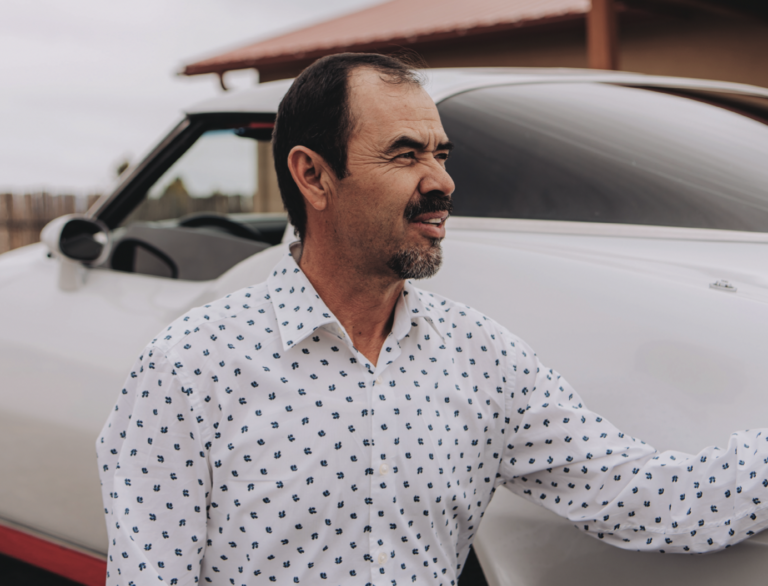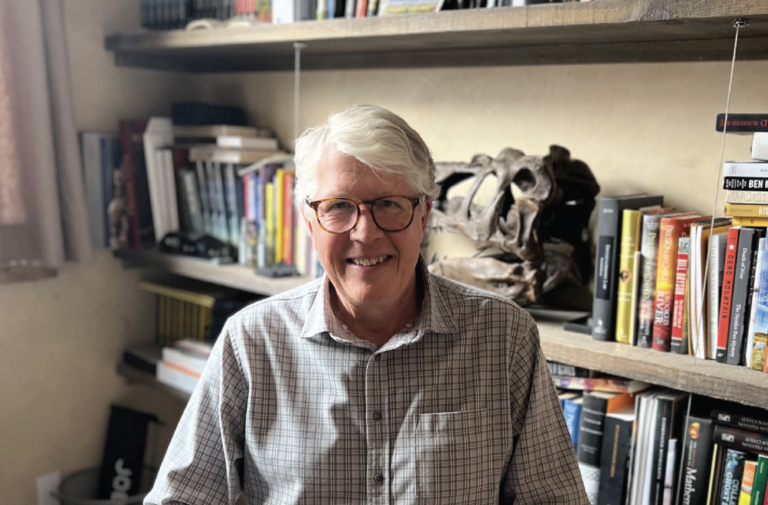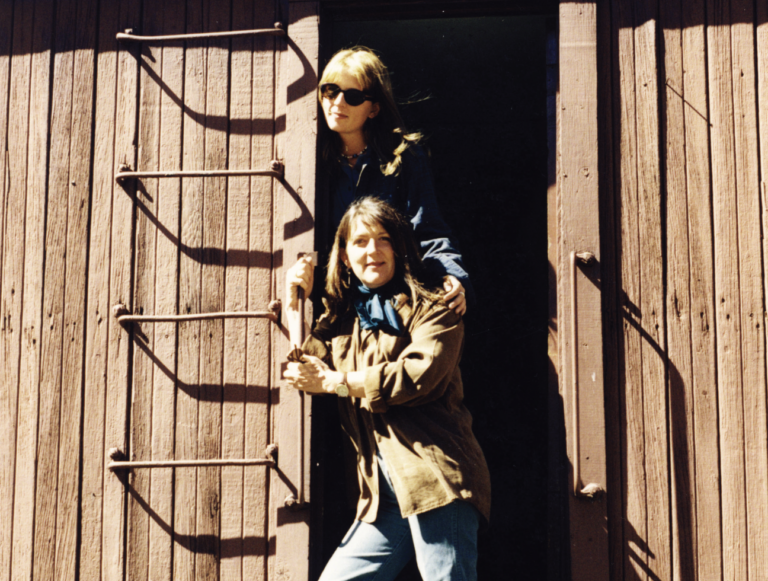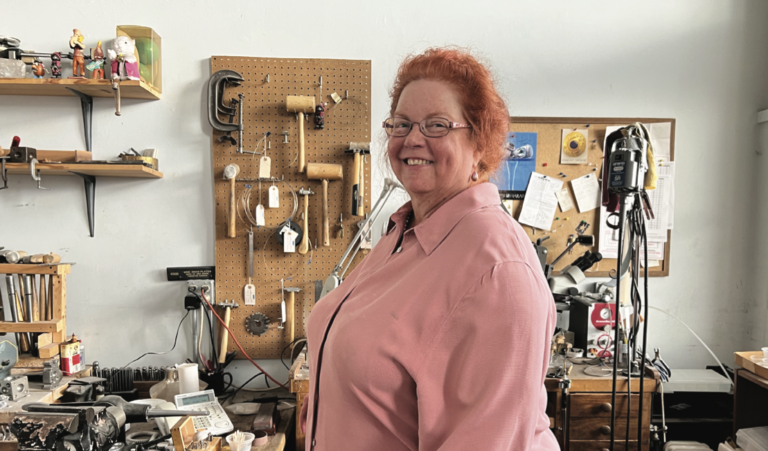STUTTERING WAS SOMETHING THAT just happened to David when he was very young. The reasons for its visitation are interesting, archaeologically, but are now largely irrelevant compared to what he did in response, which was to say, “No. This is not my fault.” With high-octane defiance (not usually found in young boys, or people broadly), he said to those who would judge, “It’s harder for me to have this stammer than it is for you to listen to it, and if you don’t like it, walk away.” In time he stopped stuttering, though is careful to say that it’s always with him. By banishing it, he realized that he could change by an act of will.
Armed with those finely-honed skills in defiance, he applied his own struggles in the writing of The King’s Speech, and won an Oscar for Best Original Screenplay. As he was walking up to the stage to get it, he thought of three things: there was no love interest to share this moment with; it was vital not to trip on the stairs; and that his life had just changed forever…all true.
Some time afterwards, then-VP Joe Biden called him out of the blue to seek advice, and to admit uncertainty about keeping his own stutter in the closet. He didn’t seek support on the eve of the second debate with Trump, but David provided it anyway, and Biden wound up delivering the performance of a lifetime. In that moment, David—who recently moved to Santa Fe in his 80s—may have graduated to national change agent.
He certainly will be pissed at us for suggesting so.
Beginning with endings, tell us about your project on dealing with death. It’s obviously an issue of the day.
It began long ago, when I was still pretty much a kid. Even back then, I sensed that there was something vast missing in my education…in fact, in the education of everyone, and that was they were not teaching us about death. It was hard to be a child of World War II and not be aware of that, particularly if you are of Jewish heritage and realize that your paternal grandparents were turned into bars of soap.
I recall being, maybe, 7 years old, and did one day what most naughty little boys do when parents aren’t home: I looked in their drawers to see what kind of magical stuff they had in there, and discovered a folder. Inside were newspaper and magazine cuttings. This would have been late ’44, early ’45, when the concentration camps were being liberated and the first photographic evidence was being seen, in America at least. Here were all of these horrible photographs, and one that I remember to this day very clearly was this mountain of shoes. I was looking at it when my father walked into the bedroom and caught me. He was upset, not so much that I had invaded his privacy, but because the sight of what he was keeping there just disturbed him so greatly. I learned for the first time that his parents, my grandparents, had been in one of those camps and their shoes were in that pile, and they were bars of soap.
So it was hard not to know about death, but I realized later on in my early teens that nothing was being said about it in our education…what it was, what the process was, and how to prepare for it. Then I suppose I stopped thinking about it for a while, as one does in your twenties and thirties when you try to find out who you are and what your life really is about. By my late forties, I had come back to America from New Zealand to be with my parents. My father was now aging, and his death really set me on this path, because he was a very intelligent man, very intellectual, very bright, but had done absolutely nothing to prepare himself for death. In fact, he had fought any kind of help.
When you say “nothing”…
Spiritually or religiously, or whatever. And I don’t think it was just his generation, it’s every generation, certainly in the West. But even so, our next-door neighbors in Mexico have a speaking relationship with death—the skeletons, the skulls, play such a strong part in their culture and art. They are very aware of death, and that’s just down on the other side of Mr. Trump’s wall.
The Maori [of New Zealand], their attitude towards death is quite different from ours, too, and has a profound effect on their character, because everybody asks, “Why are the Maori such great warriors?” The Maori Battalion in World War II was among most feared Allied forces—to the point that [German Field Marshal Erwin] Rommel complained bitterly to Eisenhower about it, saying that they were brutal and war criminals, but to his own generals said, “Give me the Maori battalion, and I’ll conquer the world.” We go into battle as individuals, we’re “rugged individuals,” but a Maori does not go into battle alone; he’s got all of his warrior ancestors behind him and with him, a whole gathering of souls supporting him. It’s a different concept of death. We don’t have that.
In our American society, we can show death in the living room on TV or in the cinema—masses of death, brutal, horrendous death. That’s absolutely okay, but try talking about your own. That’s verboten. So, I had been thinking of doing a documentary about how to prepare for death for many years, from when I first got to Hollywood, and everybody said, “That’s really interesting. What else?” After I was an Oscar winner, I thought people might listen, so, my producing partner, Clara Hendon, and I…that’s really how we began to work together. We decided to try to get this thing going, and made a sizzle reel. The reaction from everybody, universally, was, “Wow! I haven’t seen a good sizzle reel in years! It’s terrific and it’s powerful and it’s really meaningful…and it’s not for us.” I’m not quite sure what to say. I’m still determined to get it done.
You’ve changed your life a number of times—including a willingness to move different places and embrace disciplines out of your comfort zone.
I think that’s because it’s never occurred to me that life should be any other way, really. I’ve always thought, far back, that we only get one shot at this, though I’d be delighted if somebody came back and said otherwise. [Laughs] My thought has always been that you don’t get any refunds for unused mileage, so use it all up…let’s just have as full an experience as lies within my capabilities to handle. I did feel that my father’s panic at the end was at least partly due to regret over a life not fully lived. He had wanted to be an architect, but that was unheard of in Germany at that time for a young Jewish boy. He ended up in the fur business, which he really hated, but that was the trade he’d been put into. I think that terrified him at the end…the thought, “I blew it. I didn’t use up my ticket.”
Right from the beginning of my life, I was taught that you can’t. I was born in England into a comfortable middle-class family, and my mother doesn’t take care of me, of course, because English upper-middle-class mothers didn’t. I had a beautiful nanny, Adelaide, whom I adored, who loved me and I loved her, and one night—my second earliest memory—this beautiful girl with curly hair was leaning over my crib saying, “David, I love you. I’ll always love you. I’ll always be with you.” And that’s the last time I saw her, because war had started. She was from a farming family and was called back for the war effort to her family farm. The next day I woke up and the love of my life was gone, and yet life carries on. Next thing I know, we’re on a boat coming to America…and next thing I see is this great woman with a torch standing in the middle of New York Harbor. By the time I got to New York, I was a stutterer.
Actually, I was a profound stutterer, and learned that you just deal with that. I got defiant, got angry. I said, “I didn’t do anything to deserve this misery. If I stutter, I’m going to keep on stuttering, and I’ve got to keep on talking, and you’re going to have to listen to me. If you don’t like it, walk away.” And within weeks, the stuttering disappears and I’m auditioning for the school play. So immense change takes place. I was also a fat little boy, but decided, “No, I don’t like that anymore,” and changed my physical appearance. I’ve also been through three marriages, and that certainly teaches you that you can change, and survive change. Yes, it hurts. The first six months is always pretty horrible, but you survive and you do fall in love again. There is life after a disaster. So changing countries, homes, etc., to me is just simply part of an ongoing process.
I came to Santa Fe just after I turned 83, and everybody said, “You’re going to go to a new town where you know one couple?” I knew Clara and her husband, that’s it, but now I’ve got a good handful of friends who are delightful, including a couple of fellow fishermen, a couple of fellow artists. I’m very happy here. This is a great place. It’s just the right size: 80,000…perfect; it’s not so small you feel like you’re in Podunk and not so big that you feel you’re in another goddamn city. And it’s got four distinct cultures operating simultaneously in relative harmony. You’ve got us gringos, you’ve got the New Mexicans—who trace their ancestry proudly back to the Spanish—the Mexican Mexicans, and the indigenous Puebloans, and that mix makes for great cooking and great culture.
How did all the things you’ve described inform The Kings Speech?
Most stuttering afflicts children between ages 3 and 5, but there is also adult-onset stuttering, often associated with trauma, such as what used to be termed shell shock. A soldier, he’s in the trenches, stuff is landing all around him. He’s scared stiff, and internally he’s crying out to God, “Save me.” And God apparently is not listening. So a lot of shell-shocked soldiers also stutter, which is how Logue [Lionel Logue, an Australian speech therapist, played in the film by Geoffrey Rush] got involved. I’d be wrong if I also didn’t mention this, though; a lot of it is tied in with a hereditary propensity. Most stutterers…if you dig back deep enough, you’ll find that there are stutterers in their families. My mother’s eldest brother was a profound stutterer. It turned out that her father, my grandfather—and we didn’t know this for years—but towards the end of his life he admitted that he, too, had been a stutterer as a young man.
So, that pain, and a recognition of what it’s like going through it, morphed into the screenplay?
There is the cliche, and the truism, “Write about what you know.” People will often say, “David, why don’t you write about yourself, your stories? You’ve had such a full and fascinating life.” But I’ve never been able to do that, because I have never, even to this day, been able to conceive of why anybody would be interested in me or my stories, though I can write about myself, heavily disguised. So, I was able to write about my journey with stuttering through the King of England, because, whereas I cannot conceive of anybody caring about whether I stuttered as a kid or not, you can imagine caring about a prince who suddenly finds that he’s got to be king [George VI], and he stutters, and his country is about to go to war.
What did the success of The King’s Speech do for you?
Well, I was, of course, immensely pleased. When it got made, and I realized it was going to be a big success, I felt like a runner who wins the Olympic marathon. He’s in the lead, knows he’s got it won, enters the stadium…but nobody’s in the stands. Not long beforehand, my marriage of 30 years had disintegrated. That feeling did happily go away reasonably quickly, but that was the first thought: “Yeah, I won, but for whom, and why?”
When I won the Oscar, my lovely daughter, Maya, was my date, which was just terrific; we had a great big hug and then I chugged down the aisle towards the stage. Two things crossed my mind. One was, “For god’s sake, Seidler, don’t trip on the stairs and fall on your face.” The other was that, in that instance, I had changed irreversibly to the rest of the world. Not to me…I was still the same asshole I was when I woke up that morning, but from that moment on, I would be “David Seidler, Oscar winner,” and regarded differently. That really struck me profoundly. It was backed up for at least a few months when my acceptance speech seemed to get a lot of attention. I was known briefly…people would stop me on the streets or come up to my table at restaurants.
And I know this sounds like goody-goody two-shoes, and I’m not a goody-goody two-shoes guy, but I honestly see that some of the emails, letters, phone calls that I have gotten from fellow stutterers—or from parents of fellow stutterers, or spouses of fellow stutterers—saying how much The King’s Speech has helped them…given them hope, courage, showed them a way, is a far greater reward than the little gold man.
And you have spoken to Joe Biden about stuttering?
Yes, and that’s a fun story. I had a meeting with Robert Downey Jr. that I hadn’t prepared for. I’m getting out of my shower, have 45 minutes before I have to go to the meeting, and the phone rings. Of course, I know perfectly well, don’t pick it up, but I do, and on the other end a voice says, “Hi, this is Joe Biden.” I just think, “Aw no…awww, fuck man, it’s one of my asshole buddies being a jerk.” So, I said, “Come on man, I just don’t have the time for this shit. Fuck off.” And I’m about to put down the receiver when the voice, a little bit louder now, says, “This is Joseph Biden, Vice President of the United States.”
We wound up having a wonderful hour-long conversation about stuttering, and about having childhood stuttering, and what a miserable experience it is. You know, we were all horrified and terrified and hurt by the same things. We just traded battle stories. Then, and I was very moved by this, Biden expressed feelings of guilt that once he had conquered his stutter, he never talked about it because he was concerned it would hurt his political career. So, he went into the closet. I urged him to come out, and he said that’s one of the reasons he had called me, because he was feeling ashamed of himself, and thought that now he should begin. And he did, but in a light way, unfortunately.
That second debate, it was crucial, because Trump was saying, “Yeah, he’s speaking a little bit better, but they’re giving him drugs,” and all sorts of other bullshit. But it was immensely important that Joe deliver on that debate. I managed to get a message to him via a priest, a friend. All I said was, “Joe,” and I used the line that Logue uses in the movie when the king is about to give the war speech: “Say it as though you’re speaking to a friend.” And he was terrific that night. He was terrific.
Just think…your advice might have been that little difference that pushed him over. In that sense, you may have changed the future history of the world. That’s a decent thing to put on your resume.
Photo Nadav Soroker









